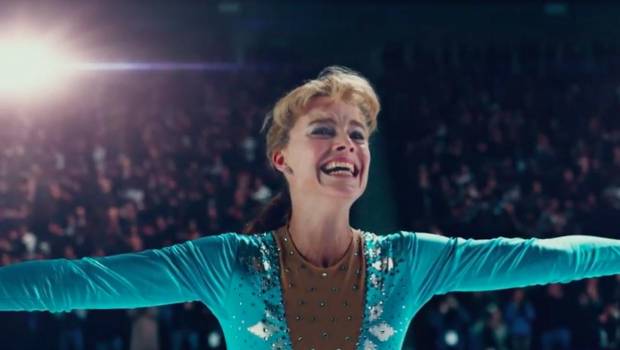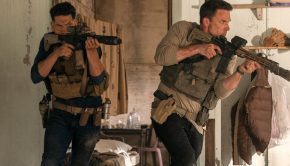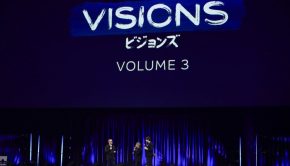I, Tonya – Film Review
Reviewed by Damien Straker on the 1st of February 2018
Roadshow presents a film by Craig Gillespie
Produced by Tom Ackerley, Margot Robbie, Steven Rogers and Bryan Unkeless
Written by Steven Rogers
Starring Margot Robbie, Sebastian Stan, Allison Janney, Julianne Nicholson, Bobby Cannavale and Paul Walter Hauser
Music by Peter Nashel
Cinematography Nicolas Karakatsanis
Edited by Tatiana S. Riegel
Running Time: 119 minutes
Rating: MA15+
Release Date: the 25th of January 2018
There is much to admire about I, Tonya but it is also a very gruelling experience to undertake. This is also descriptive of the film’s own two-pronged attack. It veers from being a brutal realisation of how professional ice skater Tonya Harding was subjected to domestic violence in her personal life, but it’s also an absurdist comedy too. It shows how paranoid, self-involved and nasty people ruined the athlete’s career. The film is directed by Australian filmmaker Craig Gillespie (Lars and the Real Girl; United States of Tara) and stars Margot Robbie (The Wolf of Wall Street, Focus) as Tonya. While the film’s narrative is fragmented and some of its post-modern devices are gimmicky, there are enough good elements to recommend the film. The performances are solid, and the film makes important comments about how US sporting competitions are image-driven and dilute the individuality of their participants.
Tonya Harding was an ice-skater in the 1990s who became famous for nailing some extremely difficult manoeuvres. She was also tarnished for her supposed involvement in breaking the knee cap of her skating rival, Nancy Kerrigan (Caitlin Carver). Whether she helped arrange this ploy is a question the film poses. The brutal crime case sets the tone for the type of people involved in this story. This is not a rags-to-riches fairy tale but one where Tonya is imprisoned by her troubled upbringing and limited socioeconomic circumstances. Further, the film exposes her mother, LaVona Golden (Allison Janney, frightening), for regularly bullying her daughter into perfection and crushing her at home. LaVona deliberately antagonises her, reminding her how she worked shifts to afford skate lessons. They also have terrible fights. One shockingly results in a small knife being thrown into Tonya’s arm.
Tonya also becomes involved with Jeff Gillooly (Sebastian Stan), a young man who is violent all throughout their relationship, from their teens and into their twenties when they are married. She tries placing a restraining order placed on him, but he persists in hounding her. Both people have been raised without their fathers. Tonya is unfortunate enough to see her father drive away from her, leaving her alone with her mother. Structurally, the film is scratchy and erratic as these characters. The setup of the family and the relationship is a series of fragmented vignettes, while the second half of the film is linear. It switches perspectives to Jeff and his friend, focusing mostly on how the knee-capping incident unfolded while Tonya was busy training.
I, Tonya uses several devices that are becoming increasing common with dramas in modern cinema. The characters talk to the camera, breaking the fourth wall, and there are also interviews where the characters are older too. The make-up used to make Margot Robbie look mature in these interviews is convincing. Since it is becoming harder for Hollywood filmmakers to make films about real people, amid many successful fantasy movies, it is slightly disheartening that more dramas willingly expose their artifice by having the actors talk to the camera. It is also a shame that Bobby Cannavale only appears in these interviews, effectively sharing a sports journalist’s commentary on Tonya’s life.
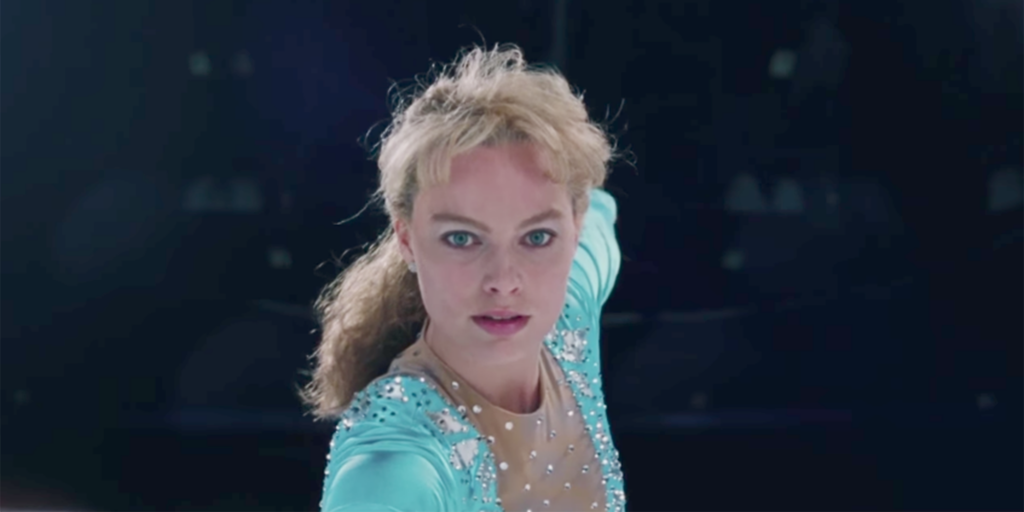
Perhaps the levity was necessary because this is pretty tough viewing. It’s fearful that some might see the film because of its trailer, the copious swearing, and the fun of seeing a beautiful Australian actress playing thoroughly against type. Please be warned: there are unflinching scenes of domestic violence here, mostly between the couple. The nerve and the courage to explore this subject is frank and admirable, perhaps comparable to Martin Scorsese’s approach in Raging Bull (1980). This isn’t to say to say I, Tonya reaches similar artistry. The closest it comes to transcending its ugliness is during the beautifully edited skate scenes. These are so skilfully cut and exciting that it’s hard to determine the involvement of body doubles or use of CGI.
I, Tonya’s brutality remains purposeful, characterising its subject as a victim of terrible circumstances. The film makes a tough point about how American sporting culture cares less about a person’s upbringing, the quality of a person’s abilities and even their talents than the wholesome image they project. There’s a memorable scene where Tonya is angry with her low scores and confronts a judge. He explains that it’s not always about the sport but the image and presentation, which highlights her class discrimination in the glamorous competition. This is relevant today. Some athletes’ mediocrity is outweighed by their social media followers.
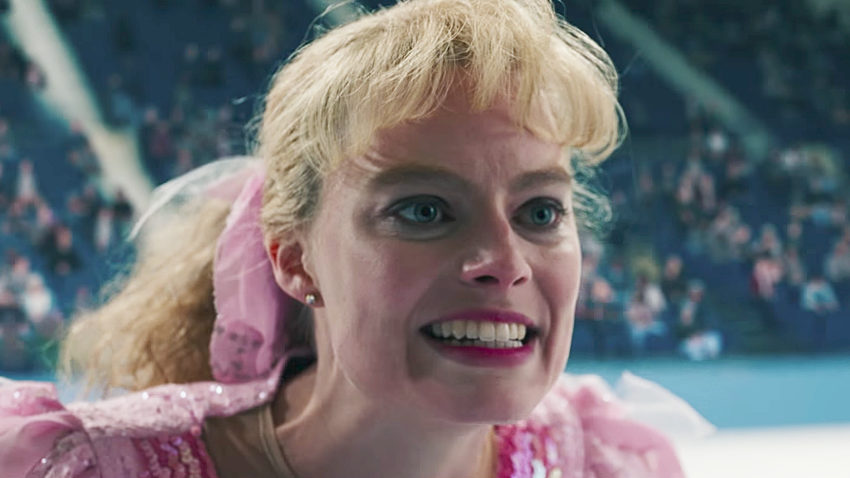
The film also openly acknowledges that Tonya was her worst enemy. There’s an unbroken tracking shot in the corridors of the arena where the girls are preparing but Tonya is busy smoking, and her weight is also problematic. Meanwhile, Margot Robbie infuses anger and attitude into her interpretation, particularly when Tonya tells the judges to suck it. Another funny part is when she describes her opponent as looking like she stepped in poop, which is hilarious. Yet there are times when one wishes the film pulled back on its attitude and trusted Robbie’s acting abilities more with quieter scenes. One of the most memorable parts is a silent close-up of Tonya’s face as she tries smiling before a performance. Her make-up is smeared, and she is crying as though she is desperately scrapping away the ugliness of her life and meet the image laid out for her. Less proves more, especially when giving actors time to breathe.
Perhaps restraint was a difficult feat given the film’s dominant personalities. Allison Janney is scary in her role as LaVona, one of her most memorable and fearless. The meanness and unremorseful her character bursts from the screen. Maybe the abuse LaVona subjected Tonya to made her more tolerant of her partner. There’s a funny moment in an interview where LaVona asks what happened to her story, which is a bit self-criticism of the film’s looseness. Sebastian Stan elicits fear and danger in his part and his idiot friend Shawn Eckardt (Paul Walter Hauser), who believes he’s a secret agent, is hilariously stupid in his bid to be famous. In the film’s view, they were personally responsible for ruining Tonya’s career having organised the knee-capping incident.
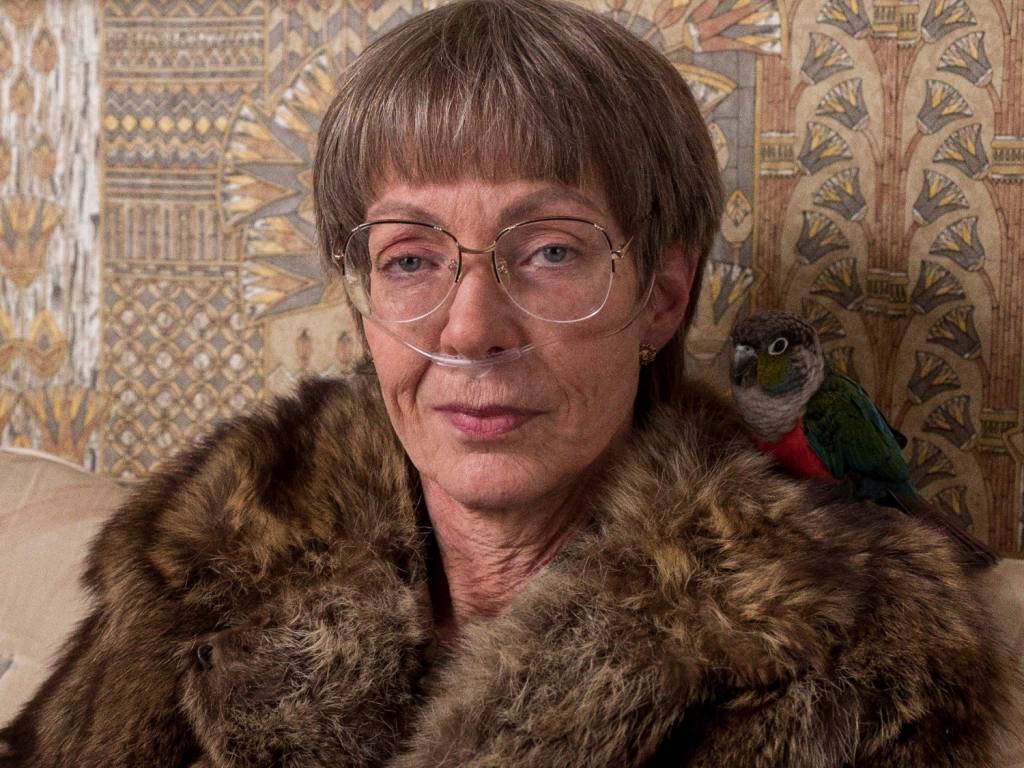
Director Craig Gillespie has made a gritty and textured sports film, but one that’s rough around the edges. It is fragmented and swaps perspectives in the second half, steering from Tonya to show how stupid some of the men were in her life. Some angles of her life are left only to valuable glimpses, such as an incredible decision to become a boxer. Her difficult relationship with her mother could also have been an entire film. Nonetheless, I, Tonya bravely shows these damaged people as they are. It is also fitting with the conflict of the narrative about Tonya wanting to be accepted as herself. The characters are the rough-and-tumble, blood-on-the-canvas types, some of whom Tonya would gladly like to break away from to live out her dream. Her lack of agency and demise becomes a tragedy, and despite some bumps along the way, this successfully manages to strike an emotional cord in the end.
Summary: There is much to admire about I, Tonya but it is also a very gruelling experience to undertake.


